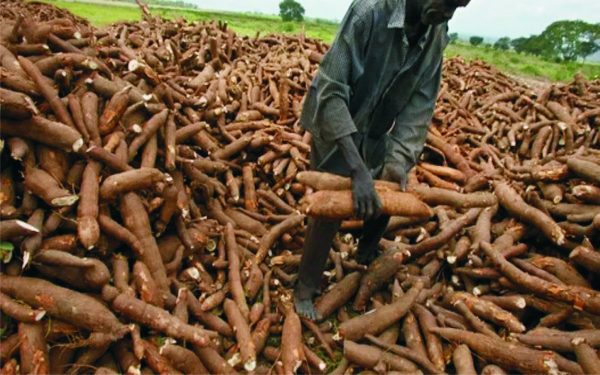- This topic is empty.
- AuthorPosts
- January 21, 2025 at 11:15 pm #543197

Planting cassava stem cuttings is a straightforward yet essential agricultural practice that can yield a bountiful harvest.
Cassava, a vital source of carbohydrates for many people around the world, thrives in tropical climates. The process of planting cassava stem cuttings involves several steps that ensure healthy growth and productivity.
In this article, we will explore these steps in detail, providing you with a comprehensive guide to successfully cultivate cassava.
1. Selecting the Right Cassava Variety
Choosing the right cassava variety is crucial for a successful planting. Different varieties have varying characteristics, including growth rate, disease resistance, and yield potential.
It’s important to select a variety that is well-suited to your local climate and soil conditions. Before planting, you should also consider the purpose of your cassava—whether for consumption, industrial use, or for animal feed.
Consulting with local agricultural experts or extension services can help you make an informed choice.
2. Preparing the Stem Cuttings
Once you’ve selected your cassava variety, the next step is to prepare the stem cuttings. The ideal stem cuttings are typically about 20-30 centimeters long and should be taken from healthy, mature plants.
It is important to ensure that the cuttings are free from diseases and pests. To prepare the cuttings, make a clean cut at an angle using a sharp knife to prevent water from collecting on the cut surface.
This helps to reduce the risk of rot and promotes better rooting. Additionally, you can treat the cut ends with a fungicide to further protect them.
3. Choosing the Right Planting Site
The choice of planting site plays a vital role in the successful growth of cassava. Look for a location that receives full sunlight and has well-draining soil.
Cassava prefers slightly acidic to neutral soil, with a pH range of 5.5 to 7.0. Before planting, it is advisable to clear the area of weeds, rocks, and debris, as these can hinder growth.
If the soil is nutrient-poor, you may want to incorporate organic matter, such as compost or well-rotted manure, to enrich it.
Good drainage is essential because cassava roots are susceptible to rot in waterlogged conditions.
4. Planting the Cuttings
When it comes time to plant the cuttings, the method you use can significantly impact their establishment.
The cuttings should be planted in a slanted position, with about one-third of their length buried in the soil. This orientation encourages the development of strong roots and prevents water from pooling at the cut end.
Space the cuttings about one meter apart to allow for proper air circulation and sunlight penetration. After planting, gently firm the soil around the cuttings to ensure good contact with the soil, which aids in rooting.
5. Caring for the Young Plants
After planting, proper care is essential to support the young cassava plants as they establish themselves. Regular watering is necessary, especially during dry spells, but avoid overwatering, as this can lead to root rot.
Mulching around the plants can help retain moisture and suppress weeds. Additionally, monitor for pests and diseases, as early intervention can prevent significant damage.
Fertilization is also important, particularly in the early stages of growth. Use a balanced fertilizer to promote healthy growth, following local recommendations for application rates.
In conclusion, planting cassava stem cuttings involves a series of methodical steps that are crucial for successful cultivation.
From selecting the right variety to caring for young plants, each stage plays an important role in ensuring a healthy and productive crop.
By following these steps, you can maximize your yield and contribute to the supply of this vital food source.
Whether for personal consumption or commercial purposes, understanding the steps involved in planting cassava stem cuttings can lead to rewarding results.
Read Also: How to Process Cassava Chips for Animal Feed
- AuthorPosts
- You must be logged in to reply to this topic.

